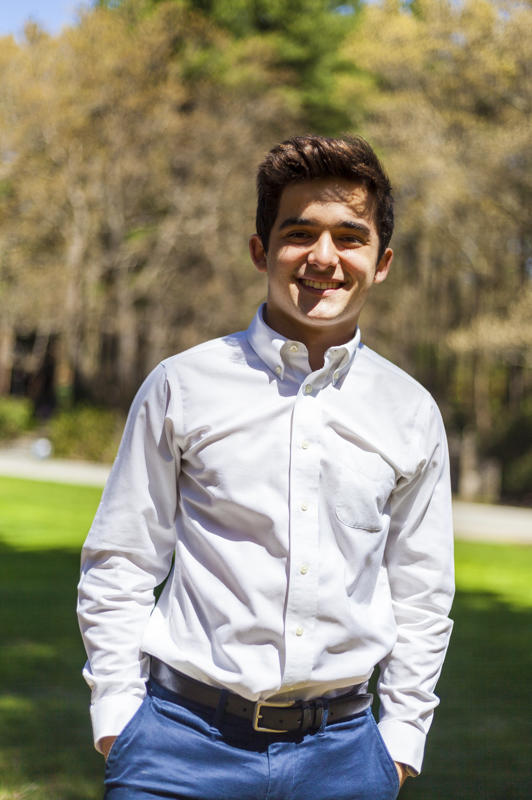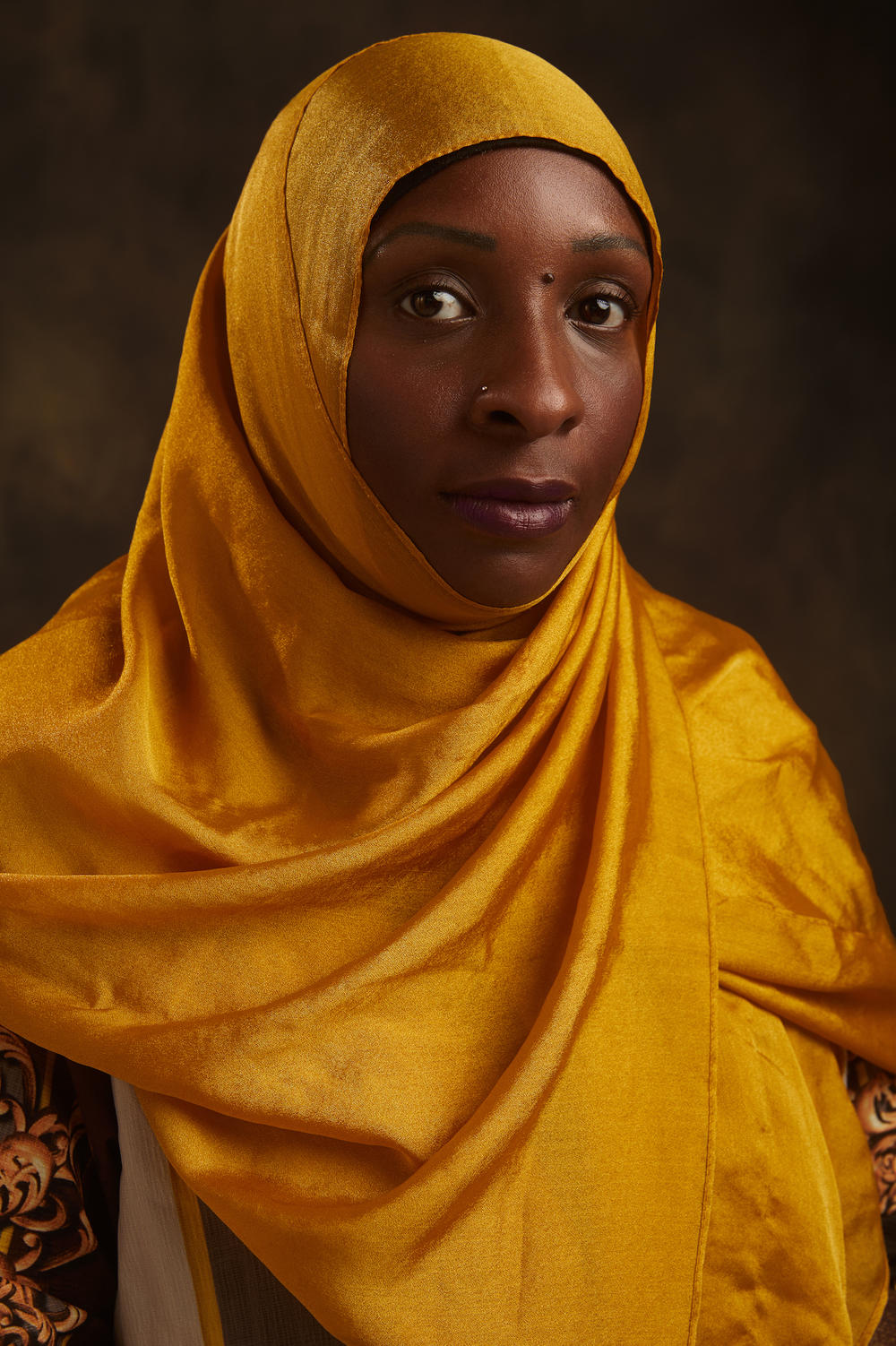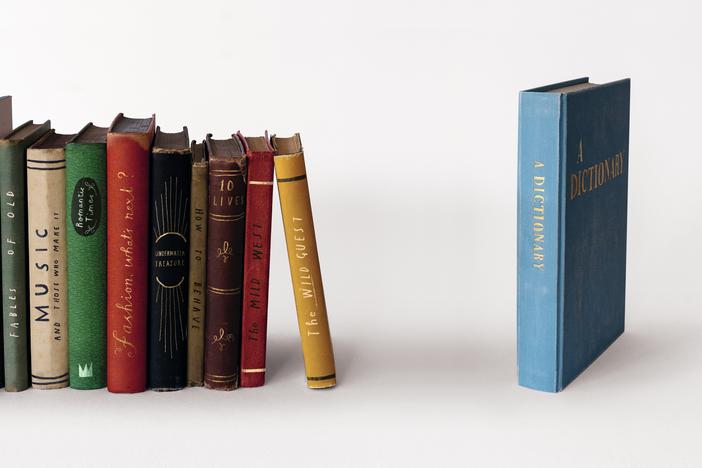Section Branding
Header Content
'I, Witness' makes world events visceral for young readers
Primary Content
When Salvador Gomez-Colon was 15 years old living in San Juan, Puerto Rico, Hurricane Maria wreaked havoc on the island. Gomez-Colon says hurricanes are part of life in Puerto Rico, but Maria was different.
"I've never been as scared as I was in that moment in my life," he says.
Gomez-Colon gives a detailed account in his book Hurricane: My Story of Resilience, one of the first books in the I, Witness series.
The living room, my room and my mom's room were flooded. The air conditioning unit was on the floor. It had just popped out because of the change in air pressure when the hurricane hit. We threw clothes onto the living room vents as water poured inside. As we tried to stop more water from coming into the bedrooms, the building started to sway.
"We need to get out of here," my mom said.
We felt the entire building shake.
Hurricane Maria devastated Puerto Rico, causing thousands of deaths, an island-wide blackout and a contaminated water supply. Gomez-Colon noticed that people were wearing dirty, wet clothes after trudging through the flood zone to run errands. To help with the public health crisis and the constant darkness, he started a foundation that raised money to give families solar-powered lamps and hand-crank washing machines. He was invited to join the International Congress of Youth Voices, co-founded by bestselling author Dave Eggers and McSweeney's publisher Amanda Uhle. Then they asked him if he'd like to be involved in another one of their projects.
"I was like, 'Of course, sure, why not?,' " Gomez-Colon recalls. "And we did a bunch of interviews and ... I was still not in the know of what was going on."
What was going on was the first phase of what became I, Witness.
To capture a 'visceral' tone, a story begins with a conversation
"It starts with oral history," says Dave Eggers.
Eggers, whose books include A Heartbreaking Work of Staggering Genius and A Hologram for the King, has been helping kids with their writing for years through 826 Valencia, a nonprofit he co-founded in 2002. He hopes the I, Witness series will help young readers grasp world events that might otherwise feel abstract.
The writing process begins with oral interviews with the young survivors, "and then that transcript, which might be many hours long, is edited down into a linear narrative," Eggers says.
After fact-checking and streamlining, he says, the final result "has that visceral, first-person, 'I'm telling you a story person to person' kind of sound to it rather than labored prose ... that sometimes might result if we said, 'Go write your book and take two years to do it,' or whatever."
How the 'I, Witness' series is different from 'I Survived'
Some kids, parents or teachers might be thinking I, Witness sounds an awful lot like I Survived, a popular children's series that also recounts events and disasters from a child's perspective. The difference is that the I Survived books are historical fiction and all written by the same person (Lauren Tarshis). Eggers says he likes those books and isn't trying to compete with them. He believes there's plenty of room for more personal narratives for kids.
"Kids are just uniquely drawn to first-person stories where the protagonist is around the same age as them. It's always been the case," he says.
For author Adama Bah, writing her I, Witness was cathartic. Accused: My Story of Injustice is a detailed account of Bah's life after the Sept. 11 attacks. Like many Muslims, she and her family faced an onslaught of racism and discrimination.
When she was 16, FBI agents barged into her family's apartment in East Harlem.
They went through papers, threw stuff around, shouted, talked to each other. They were like a destructive storm in our apartment. I heard them yelling at my mother, who didn't speak much English. They pulled her into the kitchen, screaming, "We're going to deport you and your whole family!"
Bah and her father were arrested under suspicion of terrorism. She spent weeks at a juvenile detention center. After her father was deported, she dropped out of school to support her family.
When Eggers and Uhle asked her if she wanted to tell her story, Bah says, she was reluctant, even though she'd already been the subject of a documentary.
"In writing this book, I had to address a lot of memories that I wanted to suppress and memories that I didn't want to open up, especially now that I'm a mother," she says.
Writing about trauma helps both readers and writers
But she also thought the process might help her heal: "When you go through trauma, you think that the best way to heal is to forget it. But then ... I realized the best way to heal is to address it," she says.
Bah hopes children facing hardship will read Accused.
"Even though you have stories of children who have gone through traumatic experiences, it normally targets older audience," she says. "So it's great for me to target young people and [help them] understand, listen, you're going to go through traumatic situations. Make sure you reach out and get help."
The next book in the I, Witness series is by Freshta Tori Jan, a young woman who grew up in Afghanistan. As members of an ethnic minority, her family was persecuted by the Taliban. Courage: My Story of Persecution can be pre-ordered now.
Copyright 2021 NPR. To see more, visit https://www.npr.org.
Bottom Content






